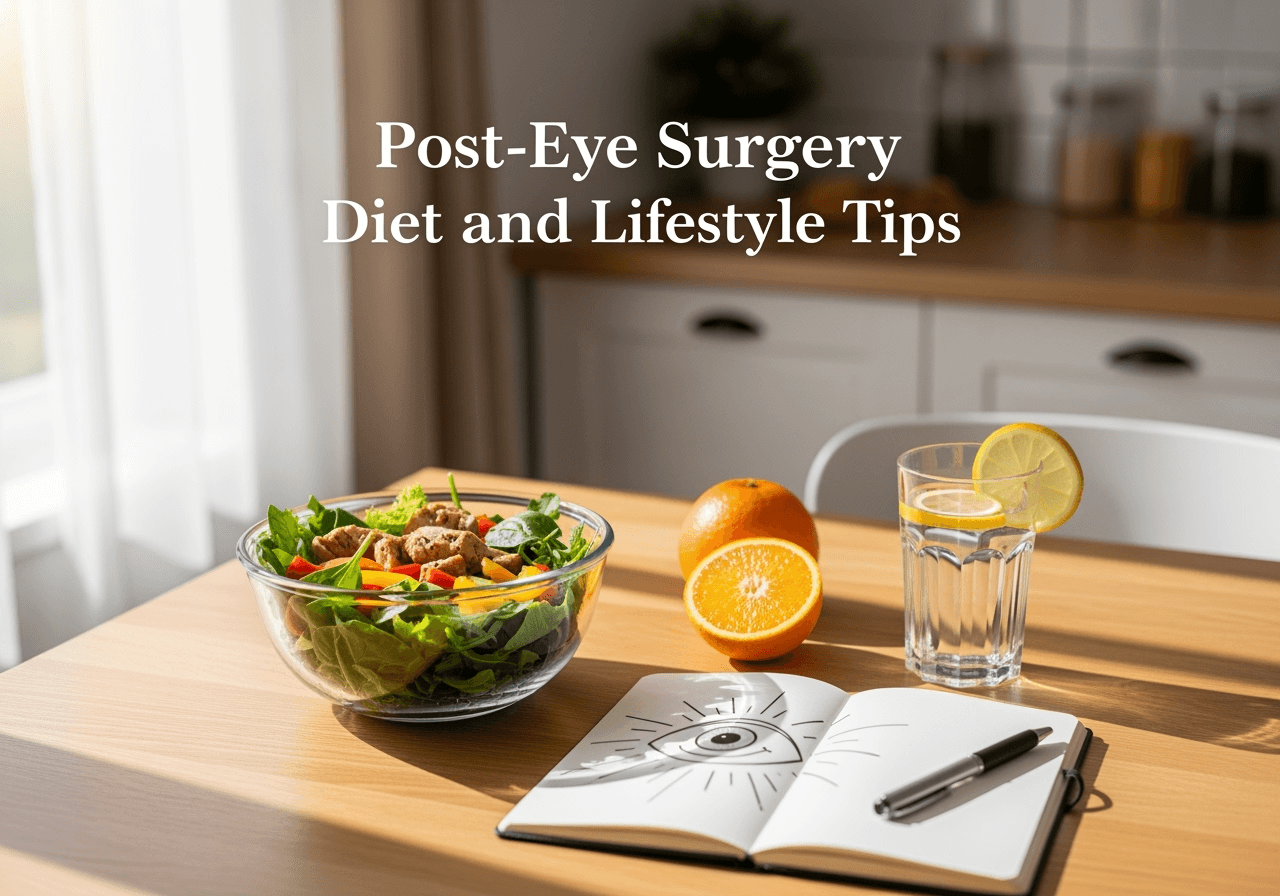
Post-Eye Surgery Diet and Lifestyle Tips
16 Oct, 2025
 Healthtrip
Healthtrip- Dietary Cornerstones for Post-Eye Surgery Healing
- The Importance of Hydration After Eye Surgery
- Making Lifestyle Adjustments for Optimal Recovery
- Protecting Your Eyes Post-Surgery: A Comprehensive Guide
- Managing Discomfort and Promoting Relaxation
- When to Seek Medical Help: Potential Complications and Concerns: Consider consulting with doctors at Vejthani Hospital, Yanhee International Hospital or Bangkok Hospital in Thailand
- Conclusion: Embracing a Healthy Recovery Journey
The Importance of Post-Eye Surgery Diet
After undergoing eye surgery, what you eat plays a surprisingly big role in your recovery. Think of food as medicine – certain nutrients can help your eyes heal faster and better. A diet rich in vitamins, minerals, and antioxidants can reduce inflammation, promote tissue repair, and protect your eyes from infection. Imagine your eyes as tiny construction sites, needing the right building blocks to rebuild and strengthen. Load up on colorful fruits and vegetables like berries, spinach, and carrots – these are packed with the good stuff! Also, don’t forget healthy fats like those found in avocados and nuts, which support overall eye health. Staying hydrated is also key; water helps keep your eyes lubricated and prevents dryness, a common post-surgery complaint. Consider consulting with a nutritionist (many are available through Healthtrip's network) for a personalized plan tailored to your specific needs and medical history, especially if you have undergone specialized procedures at facilities like Fortis Memorial Research Institute, Gurgaon or Yanhee International Hospital. So, fuel your body with the right foods, and watch your vision thrive!
Most popular procedures in India
Foods to Embrace: A Post-Surgery Shopping List
Now that you know why diet matters, let's dive into what to actually put on your plate. First up, Vitamin C – think citrus fruits, strawberries, and bell peppers. This powerhouse antioxidant helps protect your eyes from damage and speeds up healing. Next, Vitamin E – found in almonds, sunflower seeds, and spinach – it's another antioxidant that supports healthy vision. Don't forget about Omega-3 fatty acids, which are essential for reducing inflammation and keeping your eyes lubricated. Load up on fatty fish like salmon and tuna, or opt for flaxseeds and walnuts if you're vegetarian. Lutein and zeaxanthin are also your eye's best friends, found in leafy greens like kale and collard greens. These nutrients act like sunglasses, filtering out harmful blue light and protecting your retina. And of course, stay hydrated! Water, herbal teas, and clear broths are all great options. Remember, a colorful plate is a happy plate, and a happy plate means happy, healing eyes! Healthtrip can connect you with resources and specialists at hospitals such as Saudi German Hospital Cairo or Quironsalud Hospital Murcia to further personalize your dietary plan.
Wellness Treatments
Give yourself the time to relax
Lowest Prices Guaranteed!

Lowest Prices Guaranteed!
Foods to Avoid: Steering Clear of Recovery Roadblocks
Just as important as knowing what to eat is knowing what to avoid. Certain foods can hinder your recovery and cause unnecessary discomfort. First and foremost, limit your intake of processed foods, which are often high in sodium, unhealthy fats, and artificial additives. These can contribute to inflammation and slow down the healing process. Also, cut back on sugary drinks and refined carbohydrates, as they can lead to blood sugar spikes and inflammation. Watch out for excessive caffeine and alcohol, both of which can dehydrate you and interfere with your body's natural healing mechanisms. Spicy foods might irritate your eyes, so it's best to avoid them in the initial recovery period. Lastly, be mindful of potential allergens – some foods can trigger allergic reactions that affect your eyes. If you're unsure, it's always best to consult with your doctor or a registered dietitian, who you can find through Healthtrip's network of medical professionals, potentially affiliated with institutions like Bangkok Hospital or Helios Klinikum Erfurt. Steering clear of these dietary pitfalls will help ensure a smoother, faster recovery.
Lifestyle Adjustments for Optimal Healing
Beyond diet, your lifestyle plays a significant role in your post-eye surgery recovery. First, prioritize rest. Your body needs time to heal, and getting enough sleep is crucial. Aim for at least 7-8 hours of quality sleep each night. Protect your eyes from bright light and sunlight by wearing sunglasses, especially when outdoors. Reduce screen time – staring at computers, phones, and TVs can strain your eyes and slow down healing. Take frequent breaks and practice the 20-20-20 rule: every 20 minutes, look at something 20 feet away for 20 seconds. Avoid strenuous activities and heavy lifting, as these can increase pressure in your eyes. Keep your eye area clean and avoid rubbing your eyes, which can introduce bacteria and cause infection. And of course, follow your doctor's instructions meticulously – take all prescribed medications as directed and attend all follow-up appointments. Healthtrip can assist in coordinating your post-operative care, including connecting you with reputable medical facilities like NMC Specialty Hospital, Al Nahda, Dubai for follow-up consultations or even arranging virtual check-ins for added convenience. Making these lifestyle adjustments will create a supportive environment for your eyes to heal and thrive.
Tips for Managing Common Post-Surgery Discomfort
It's normal to experience some discomfort after eye surgery, such as dryness, itchiness, or sensitivity to light. Managing these symptoms effectively can make your recovery much more comfortable. For dry eyes, use artificial tears as directed by your doctor. These lubricating drops can help keep your eyes moist and prevent irritation. A humidifier can also help add moisture to the air, especially in dry climates. If you experience light sensitivity, wear sunglasses indoors and outdoors. Dimming the lights in your home can also provide relief. For itchiness, resist the urge to rub your eyes. Instead, try applying a cool compress to the area. If the itchiness persists, consult your doctor – it could be a sign of an allergic reaction or infection. Pain relievers, as prescribed by your doctor, can help manage any discomfort or pain. Remember, everyone's experience is different, so don't hesitate to reach out to your healthcare provider if you have any concerns. Healthtrip's network of trusted medical professionals, including specialists at facilities like Taoufik Clinic, Tunisia or London Medical, are available to address your questions and provide personalized guidance. With the right care and attention, you can navigate these temporary discomforts and enjoy a smooth recovery.
Dietary Cornerstones for Post-Eye Surgery Healing
Undergoing eye surgery is a significant step towards improving your vision and overall quality of life. However, the journey doesn't end in the operating room. The post-operative period is crucial for optimal healing and achieving the best possible outcome. While following your doctor's instructions meticulously is paramount, incorporating specific dietary changes can significantly enhance your recovery. Think of your body as a construction site: surgery is the major renovation, and your diet provides the essential building blocks for repair and rejuvenation. A diet rich in vitamins, minerals, and antioxidants helps reduce inflammation, promotes tissue repair, and boosts your immune system, all of which are vital after eye surgery. Neglecting your nutritional needs could potentially slow down the healing process, increase the risk of complications, and ultimately impact the long-term success of the procedure. So, what should be on your plate? Focus on incorporating colorful fruits and vegetables like berries, leafy greens, and bell peppers, lean proteins such as fish and chicken, and healthy fats from sources like avocados and nuts. These foods are packed with nutrients that actively support eye health and overall well-being. If you're considering eye surgery, exploring options at hospitals like Fortis Shalimar Bagh or Vejthani Hospital could be a great starting point, and remember, proper nutrition is your secret weapon for a swift and successful recovery!
Foods That Promote Eye Health
Let's delve into the specifics of what constitutes an eye-friendly diet. Antioxidants are your best friends in this endeavor. These powerful compounds combat free radicals, unstable molecules that can damage cells and contribute to inflammation. Vitamin C, found abundantly in citrus fruits, strawberries, and broccoli, is a potent antioxidant that aids in collagen production, essential for tissue repair. Vitamin E, present in almonds, sunflower seeds, and spinach, protects cell membranes from damage. Lutein and zeaxanthin, carotenoids concentrated in leafy green vegetables like kale and spinach, are crucial for protecting the macula, the central part of the retina responsible for sharp, detailed vision. Omega-3 fatty acids, abundant in fatty fish like salmon, tuna, and mackerel, as well as flaxseeds and walnuts, are known for their anti-inflammatory properties and contribute to overall eye health. Zinc, found in oysters, beef, and pumpkin seeds, plays a vital role in transporting vitamin A from the liver to the retina, where it's needed to produce melanin, a protective pigment. Make sure to include a variety of these foods in your daily meals to provide your eyes with the essential nutrients they need to heal and thrive. Consulting with a nutritionist or dietician can further personalize your dietary plan based on your specific needs and the type of eye surgery you've undergone. Remember, prioritizing your diet is like investing in the longevity and clarity of your vision, a priceless asset! For consultations, consider quality care facilities like Saudi German Hospital Cairo, Egypt, ensuring well-rounded health advice.
The Importance of Hydration After Eye Surgery
Dehydration is often underestimated, but its impact on post-surgical recovery, especially after eye surgery, can be significant. Water is the lifeblood of our bodies, essential for countless physiological processes, including tissue repair, nutrient transport, and waste removal. After surgery, your body needs ample fluids to facilitate healing and prevent complications. Dehydration can lead to a host of undesirable effects, such as dry eyes, increased inflammation, and impaired circulation, all of which can hinder the recovery process. Dry eyes, a common complaint after eye surgery, can be exacerbated by dehydration, leading to discomfort, blurred vision, and even damage to the cornea. Adequate hydration helps maintain the tear film, the delicate layer of moisture that protects the surface of the eye. Furthermore, dehydration can thicken the blood, reducing its ability to deliver vital nutrients and oxygen to the healing tissues. This can slow down the recovery process and increase the risk of blood clots. Inflammation, a natural response to surgery, can also be aggravated by dehydration. Water helps flush out toxins and inflammatory compounds, promoting a faster and more comfortable recovery. Therefore, staying adequately hydrated is not merely a suggestion; it's a crucial component of your post-operative care plan. If you are considering hospitals such as Yanhee International Hospital, keep in mind that proper hydration will be part of their post-operative recommendations as well.
How Much Water Should You Drink?
So, how much water should you be aiming for each day? The general recommendation is around eight glasses (64 ounces) of water, but this can vary depending on individual factors such as your weight, activity level, and climate. After eye surgery, it's wise to increase your fluid intake slightly to support the healing process. A good rule of thumb is to aim for at least 8-10 glasses of water per day. However, water isn't the only source of hydration. You can also get fluids from other beverages like herbal teas, clear broths, and fruit-infused water. Fruits and vegetables with high water content, such as watermelon, cucumbers, and celery, can also contribute to your daily fluid intake. Avoid sugary drinks like sodas and juices, as they can actually dehydrate you and hinder your recovery. Pay attention to your body's signals. Thirst is a sign that you're already dehydrated, so drink water regularly throughout the day, even if you don't feel thirsty. Monitor the color of your urine; it should be pale yellow. Dark yellow urine is an indication that you need to drink more fluids. If you have any underlying medical conditions, such as kidney or heart problems, consult with your doctor to determine the appropriate fluid intake for your specific situation. Staying well-hydrated is such a simple yet powerful way to support your recovery and ensure the best possible outcome after eye surgery. Should you need specialized care, consider facilities like Vejthani Hospital.
Making Lifestyle Adjustments for Optimal Recovery
Undergoing eye surgery is an investment in your vision, and like any investment, it requires careful nurturing to yield the best returns. While dietary changes and hydration play vital roles, making certain lifestyle adjustments is equally crucial for ensuring a smooth and successful recovery. These adjustments encompass various aspects of your daily routine, from physical activity to screen time, and from sleep habits to environmental factors. Ignoring these lifestyle modifications can potentially jeopardize your healing process and increase the risk of complications. Think of it as creating an optimal environment for your eyes to recover and regain their strength. For instance, excessive physical exertion can raise intraocular pressure, potentially straining the healing tissues. Similarly, prolonged exposure to digital screens can lead to eye fatigue and dryness, hindering the recovery process. Getting adequate sleep is essential for tissue repair and overall well-being. And minimizing exposure to irritants like smoke, dust, and allergens can prevent inflammation and infection. So, let's explore some specific lifestyle adjustments that can significantly contribute to your post-operative recovery. For those considering or having had procedures at hospitals like Bangkok Hospital, these adjustments will complement the professional care you receive.
Limiting Screen Time and Physical Activity
In today's digital age, limiting screen time can be a challenge, but it's a necessary sacrifice for the sake of your recovering eyes. Prolonged exposure to computers, smartphones, and tablets can lead to digital eye strain, characterized by symptoms such as dry eyes, blurred vision, headaches, and neck pain. The blue light emitted from these devices can also potentially damage the retina. After eye surgery, it's crucial to give your eyes a break from these stressors. Reduce your screen time as much as possible, especially in the first few days after surgery. When you do use screens, take frequent breaks using the 20-20-20 rule: every 20 minutes, look at something 20 feet away for 20 seconds. Adjust the brightness and contrast of your screen to a comfortable level. Use artificial tears to lubricate your eyes and prevent dryness. Similarly, limiting physical activity is crucial for preventing complications. Strenuous activities like heavy lifting, vigorous exercise, and bending over can increase intraocular pressure, potentially disrupting the healing process. Avoid these activities for at least a week or two after surgery, or as directed by your doctor. Light activities like walking are generally safe, but avoid anything that makes you feel strained or uncomfortable. Listen to your body and rest when you need to. By prioritizing rest and minimizing strain on your eyes, you're giving them the best possible chance to heal and recover fully. If you are in the region, facilities such as Vejthani Hospital can offer resources to help manage these lifestyle changes effectively.
Also Read:
Protecting Your Eyes Post-Surgery: A Comprehensive Guide
Post-eye surgery, your peepers are precious cargo, requiring diligent safeguarding to ensure optimal healing and prevent complications. Think of your eyes as delicate seedlings, newly planted and incredibly vulnerable. The world, in all its brilliance, can inadvertently pose threats, from harsh UV rays to stray dust particles. But fear not! With a few simple yet crucial measures, you can create a protective haven, allowing your eyes to mend peacefully. This is where taking precautions against potential irritants becomes paramount. Just like you wouldn’t leave a newborn baby exposed to the elements, your eyes now require extra TLC. Start by understanding the immediate environment. Is it dusty? Is there a risk of splashes or accidental bumps? Answering these questions will dictate your approach. During the day, consider wearing sunglasses, even indoors if the lighting is particularly bright. It's not just about shielding those precious eyes from the sun, it's also about creating a soothing, dim environment that aids relaxation and reduces strain. At night, be mindful of the surrounding lights, perhaps opting for softer, indirect illumination to minimize glare. Furthermore, keeping your hands scrupulously clean before applying any prescribed eye drops or touching the skin around your eyes is non-negotiable. Think of it as setting up a germ-free zone to prevent infections. This is a critical step. Remember, you are your eyes' first line of defense in the weeks following surgery, so vigilance is key to a successful recovery. Healthtrip is here to guide you through every step of your medical journey; connect with us to explore your options for post-operative care and support.
Shielding from Environmental Hazards
Environmental hazards are the sneaky saboteurs of your eye health, especially after surgery when your eyes are in a particularly delicate state. We're talking about dust, pollen, smoke, and even wind – those everyday elements that we often take for granted but which can wreak havoc on your healing eyes. Imagine a gentle breeze carrying tiny particles, each one a potential irritant waiting to land on your newly operated eye. That's why creating a shield is essential. Sunglasses, especially wraparound ones, are your best friends outdoors. They act as a barrier against wind, dust, and those pesky UV rays. Indoors, consider air purifiers if you have allergies or live in a smoggy area. These devices can help filter out airborne irritants, creating a cleaner, more soothing environment for your eyes to recover. Another often overlooked aspect is humidity. Dry air can exacerbate discomfort and slow down the healing process. If you live in a dry climate or use indoor heating or air conditioning, consider using a humidifier to maintain a comfortable level of moisture in the air. When cleaning your home, be mindful of cleaning products. Harsh chemicals can release fumes that irritate your eyes. Opt for natural or gentle cleaning solutions and ensure proper ventilation. Also, avoid activities that could potentially increase exposure to irritants, such as gardening, construction work, or spending time in smoky environments. Remember, prevention is always better than cure. By taking these proactive steps, you're not just protecting your eyes, you're creating an optimal environment for healing and ensuring a smoother, more comfortable recovery journey. For comprehensive eye care options and guidance on post-operative recovery, Healthtrip partners with top-tier facilities like Vejthani Hospital and Yanhee International Hospital in Thailand, ensuring access to world-class medical expertise and support.
The Importance of Protective Eyewear
Protective eyewear isn't just a fashion statement post-eye surgery; it's your eye's personal bodyguard, standing strong against a world full of potential threats. Think of it as a miniature shield, guarding your delicate vision from the unseen dangers lurking around every corner. We're talking about everything from the glaring sun to stray flecks of dust, and even the accidental bump from a well-meaning hug. The right protective eyewear can make all the difference in your recovery. Sunglasses with UV protection are a must-have, especially when venturing outdoors. The sun's rays can be incredibly damaging to healing tissues, so shielding your eyes from those harmful UV rays is non-negotiable. But it's not just about sunny days; even on cloudy days, UV rays can penetrate through the clouds, posing a hidden threat. Look for sunglasses that offer 100% UVA and UVB protection. Wraparound glasses provide the most comprehensive coverage, minimizing the risk of light sneaking in from the sides. Indoors, you might not think you need protection, but consider wearing glasses if you're working on a computer or watching TV for extended periods. These activities can strain your eyes, and even a simple pair of clear glasses can help reduce that strain. Furthermore, if you have children or pets, wearing glasses can offer an extra layer of protection against accidental scratches or bumps. Remember, your eyes are in a vulnerable state after surgery, and even the smallest injury can set back your recovery. So, embrace protective eyewear as your essential ally in the healing process. Healthtrip can connect you with experts at hospitals like Saudi German Hospital Cairo, Egypt, who can recommend the best protective eyewear for your specific needs and lifestyle.
Also Read:
Managing Discomfort and Promoting Relaxation
Let's face it, post-eye surgery isn't exactly a walk in the park. There might be some discomfort, perhaps a bit of soreness, or even a slight itchiness. But don't fret! These are common occurrences, and there are plenty of ways to manage them and promote relaxation, turning your recovery period into a tranquil retreat rather than an ordeal. It all starts with understanding your body's signals. Pay attention to what triggers your discomfort and try to avoid those triggers. If bright light is the culprit, dim the lights or wear sunglasses. If dryness is the issue, use artificial tears as prescribed by your doctor. And remember, over-the-counter pain relievers can be your allies in the fight against discomfort, but always consult with your doctor before taking any medication. Beyond medication, relaxation techniques can work wonders. Gentle eye exercises, like slow blinks and focusing on distant objects, can help reduce strain and improve circulation. Warm compresses can soothe tired eyes, while cold compresses can help reduce swelling. And don't underestimate the power of a good night's sleep. Creating a relaxing bedtime routine, free from screens and stress, can promote restful sleep, allowing your eyes to heal and rejuvenate. Remember, stress is a major contributor to discomfort. So, find healthy ways to manage stress, whether it's through meditation, yoga, or simply spending time in nature. Your eyes will thank you for it. Healthtrip understands the importance of holistic care during recovery and can guide you towards resources and facilities in hospitals like Vejthani Hospital offering comprehensive pain management and relaxation therapies to ensure a comfortable recuperation.
Pain Relief Strategies
Pain relief after eye surgery is a crucial aspect of your recovery journey, and thankfully, there are several effective strategies you can employ to keep discomfort at bay. First and foremost, diligently follow your doctor's instructions regarding prescribed pain medication. Often, over-the-counter options like acetaminophen or ibuprofen can be sufficient for managing mild pain, but consult your doctor before taking anything new. Remember, self-medicating can sometimes lead to unforeseen complications. Beyond medication, cold compresses can work wonders in reducing swelling and numbing the area around your eye. Apply a clean, cold compress for 15-20 minutes at a time, several times a day, especially during the first few days after surgery. On the other hand, warm compresses can help soothe achy, tired eyes. A warm compress can improve blood circulation and relax the muscles around your eye. It’s beneficial to experiment with both to see which provides the most comfort. Eye drops are another valuable tool in your pain relief arsenal. Artificial tears can lubricate your eyes and reduce dryness, which can often exacerbate discomfort. Use them as frequently as recommended by your doctor, especially if you experience a gritty or burning sensation. Moreover, be mindful of your posture. Maintaining good posture can prevent strain on your neck and shoulders, which can indirectly affect your eyes. Take frequent breaks from activities that require prolonged focus, such as reading or computer work. During these breaks, gently close your eyes or focus on a distant object to relax your eye muscles. Healthtrip can provide personalized recommendations and connect you with specialists such as Yanhee International Hospital who can offer tailored pain relief strategies for a smooth and comfortable recovery.
Creating a Relaxing Environment
Creating a relaxing environment is paramount for a smooth and comfortable recovery post-eye surgery. Think of it as building a peaceful sanctuary that nurtures your healing process from the inside out. Starts with your immediate surroundings. Dimming the lights and reducing glare is a simple yet effective way to minimize eye strain. Opt for soft, warm lighting instead of harsh, bright lights. Consider using blackout curtains or blinds to create a dark and restful space, especially during the day. Sound also plays a significant role in creating a relaxing atmosphere. Minimize noise pollution by turning off the TV, radio, and other electronic devices. If you prefer some background noise, opt for calming nature sounds or gentle instrumental music. Temperature is another critical factor. Ensure that your room is comfortably cool, as excessive heat can exacerbate discomfort. Use a fan or air conditioner to maintain a pleasant temperature. Aromatherapy can also contribute to a relaxing environment. Certain scents, such as lavender or chamomile, have calming properties that can help reduce stress and promote relaxation. Use essential oil diffusers or scented candles to infuse your room with these soothing aromas. Beyond your physical surroundings, focus on creating a relaxing mindset. Practice relaxation techniques such as meditation, deep breathing, or yoga. These practices can help calm your mind and reduce stress, which can indirectly benefit your eye health. Remember, your mental state plays a crucial role in your recovery. So, prioritize self-care and create a relaxing environment that supports your healing process. Healthtrip partners with hospitals like Bangkok Hospital to ensure access to amenities and therapies designed to foster relaxation and promote a speedy recovery.
Also Read:
When to Seek Medical Help: Potential Complications and Concerns
While most eye surgeries are successful and lead to improved vision, it's crucial to be aware of potential complications and know when to seek medical help. Think of it as having a safety net, knowing when to rely on expert assistance to ensure a smooth recovery. Being vigilant and proactive can prevent minor issues from escalating into serious problems. One of the first signs to watch out for is a sudden decrease in vision. While some blurry vision is expected after surgery, a significant and unexplained drop in clarity should be promptly reported to your doctor. Similarly, persistent or severe pain that isn't relieved by prescribed medication warrants immediate attention. This could be a sign of infection or increased pressure within the eye. Redness, swelling, and discharge are other indicators of potential infection. If you notice any of these symptoms, especially if they are accompanied by fever or chills, seek medical help right away. Flashes of light or a sudden increase in floaters, those tiny specks that drift across your field of vision, can be a sign of retinal detachment, a serious condition that requires prompt treatment. Nausea and vomiting, especially when accompanied by eye pain, can indicate increased eye pressure, a complication that can damage the optic nerve. And finally, if you experience any new or unusual symptoms that you're concerned about, don't hesitate to contact your doctor. It's always better to err on the side of caution than to ignore a potential problem. Healthtrip understands your concerns during recovery and has partnered with hospitals such as Vejthani Hospital, Yanhee International Hospital and Bangkok Hospital in Thailand, ensuring you have access to immediate medical assistance and expert care whenever needed.
Recognizing Warning Signs
Recognizing warning signs after eye surgery is vital for ensuring a safe and successful recovery. It's like being a detective, carefully observing your body for any clues that might indicate a problem. Knowing what to look for can empower you to take prompt action and prevent complications from worsening. One of the most important warning signs is a sudden or significant change in vision. This could manifest as increased blurriness, double vision, or a blind spot in your field of vision. While some fluctuations in vision are normal during the healing process, any sudden or dramatic changes should be reported to your doctor immediately. Severe pain that is not relieved by medication is another warning sign. While some discomfort is expected after surgery, excruciating or persistent pain could indicate an infection, inflammation, or increased pressure within the eye. Redness, swelling, and discharge around the eye are also telltale signs of infection. If you notice any of these symptoms, especially if they are accompanied by fever or chills, seek medical attention promptly. Flashes of light or a sudden increase in floaters, those tiny specks that drift across your field of vision, can be a sign of retinal detachment, which requires immediate treatment to prevent vision loss. Nausea and vomiting, especially when accompanied by eye pain, can indicate increased eye pressure, a serious complication that can damage the optic nerve. Other warning signs include a droopy eyelid, persistent headaches, or any other unusual symptoms that you're concerned about. Remember, it's always better to be safe than sorry. If you're unsure about any symptoms you're experiencing, don't hesitate to contact your doctor. Healthtrip is dedicated to your well-being and connects you with leading hospitals like NMC Specialty Hospital, Al Nahda, Dubai, providing access to attentive medical professionals ready to address your concerns promptly.
The Importance of Timely Intervention
The importance of timely intervention after eye surgery cannot be overstated. It's like having a window of opportunity to address potential problems before they escalate and compromise your vision. Delaying treatment can have serious consequences, potentially leading to permanent vision loss or other complications. Think of your eyes as a delicate ecosystem, where even a small imbalance can disrupt the entire system. A minor infection, if left untreated, can quickly spread and cause significant damage. Similarly, increased eye pressure, if not addressed promptly, can damage the optic nerve and lead to glaucoma, a leading cause of blindness. Retinal detachment, if not treated within a few days, can result in permanent vision loss. That's why it's crucial to be vigilant and proactive, seeking medical help at the first sign of a problem. Don't wait for the situation to worsen. Early intervention can often prevent complications from progressing and ensure a more favorable outcome. Timely intervention also involves adhering to your doctor's instructions meticulously. Taking prescribed medications as directed, attending follow-up appointments, and following post-operative care guidelines are all essential for a smooth recovery. Remember, your doctor is your ally in this journey. They have the expertise and experience to guide you through the healing process and address any concerns that may arise. Don't hesitate to ask questions or seek clarification if you're unsure about anything. Healthtrip is committed to ensuring you receive the best possible care and facilitates access to world-class medical facilities like Fortis Memorial Research Institute, Gurgaon where specialized teams are equipped for immediate and comprehensive eye care interventions.
Conclusion: Embracing a Healthy Recovery Journey
Embarking on a post-eye surgery recovery journey requires a holistic approach, blending medical guidance with proactive self-care. Your commitment to protecting your eyes, managing any discomfort, and knowing when to seek help forms the cornerstone of a successful and swift healing process. It's about listening to your body, respecting its needs, and creating an environment that fosters rejuvenation. This journey is not just about healing your eyes, it's also about nurturing your overall well-being. Embrace this opportunity to prioritize your health and develop habits that will benefit you for years to come. Remember, you're not alone in this process. Healthtrip is here to support you every step of the way, connecting you with trusted medical professionals and providing you with the resources you need to make informed decisions about your care. Together, we can navigate this journey with confidence and optimism, ensuring a brighter, healthier future for your vision. So, take a deep breath, trust the process, and embrace a healthy recovery journey. Your eyes will thank you for it. And remember, Healthtrip is always here to support you on your path to better health and wellness, connecting you with leading hospitals such as Max Healthcare Saket and providing comprehensive support for your medical journey.
Also Read:
Related Blogs
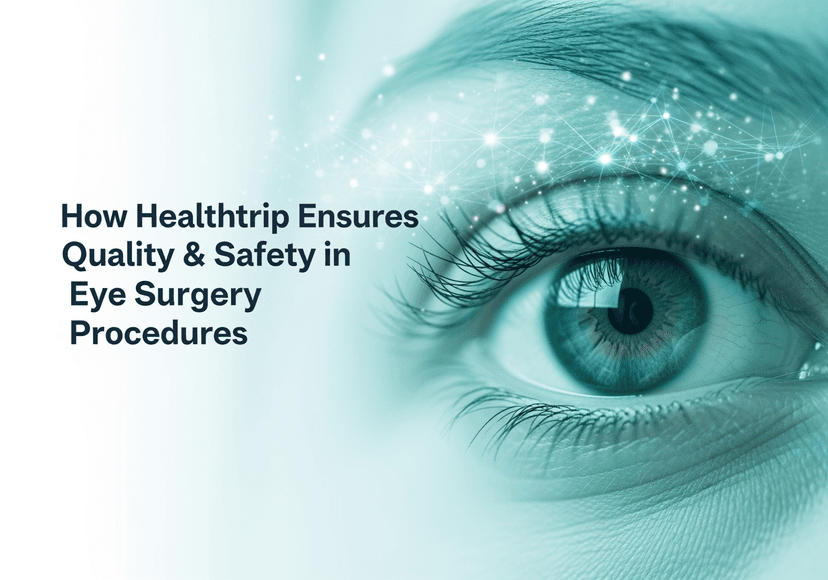
How Healthtrip Ensures Quality & Safety in Eye Surgery Procedures
Detailed guide on eye surgery, featuring doctors, hospitals, risks, recovery,
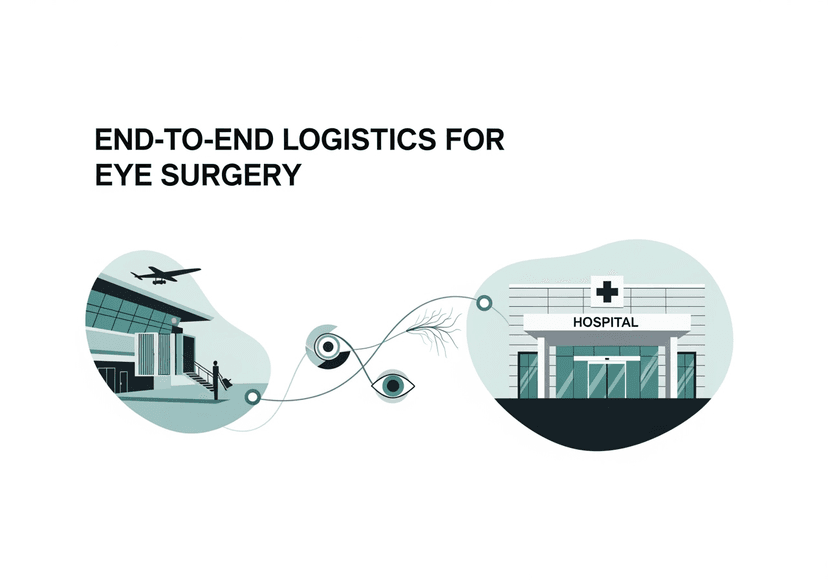
End-to-End Logistics for Eye Surgery with Healthtrip's Support
Detailed guide on eye surgery, featuring doctors, hospitals, risks, recovery,
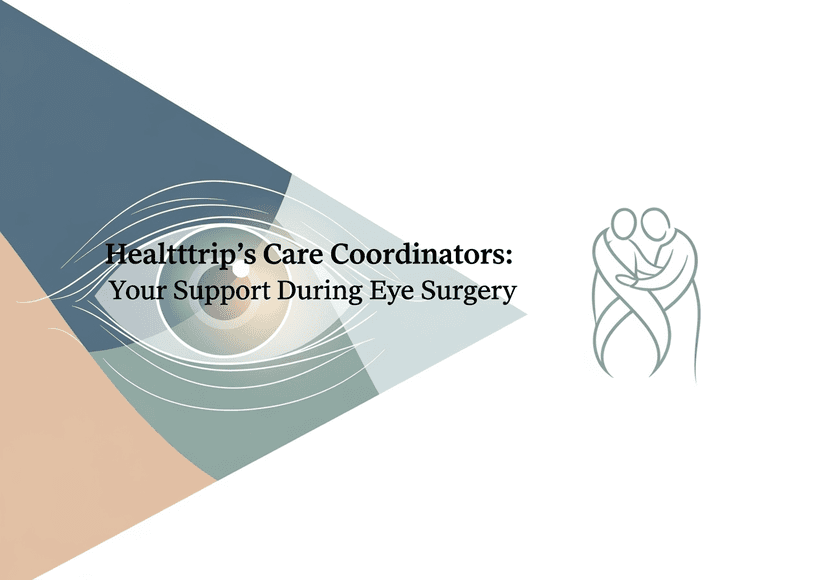
Healthtrip's Care Coordinators: Your Support During Eye Surgery
Detailed guide on eye surgery, featuring doctors, hospitals, risks, recovery,
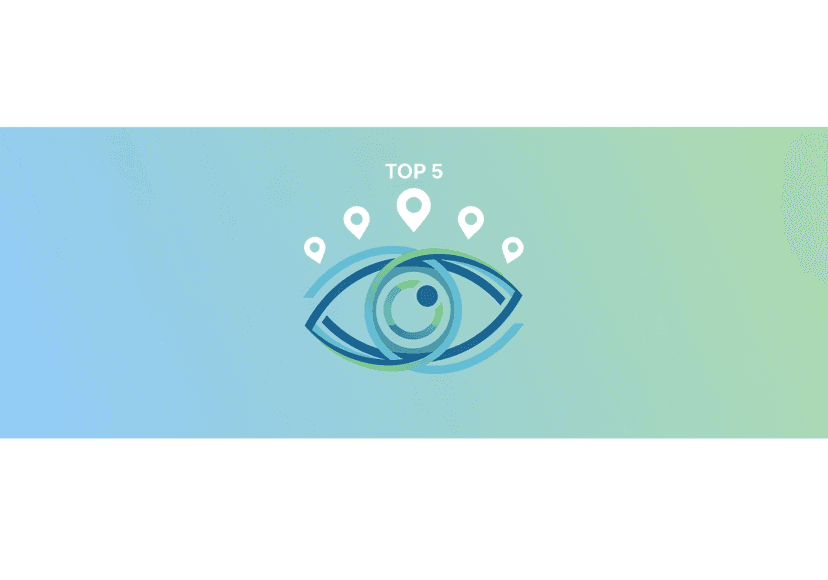
Top 5 Indian Hospitals for Eye Surgery
Detailed guide on eye surgery, featuring doctors, hospitals, risks, recovery,
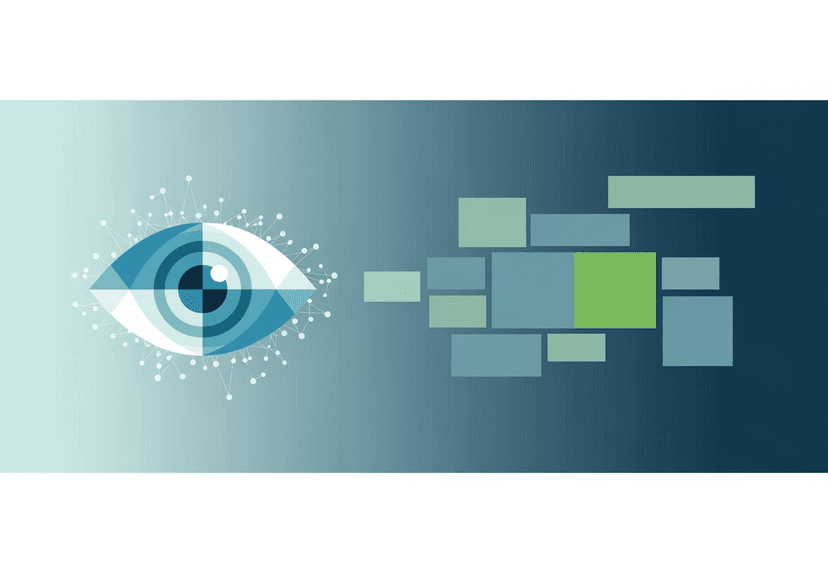
Common Risks in Eye Surgery and How Healthtrip Manages Them
Detailed guide on eye surgery, featuring doctors, hospitals, risks, recovery,
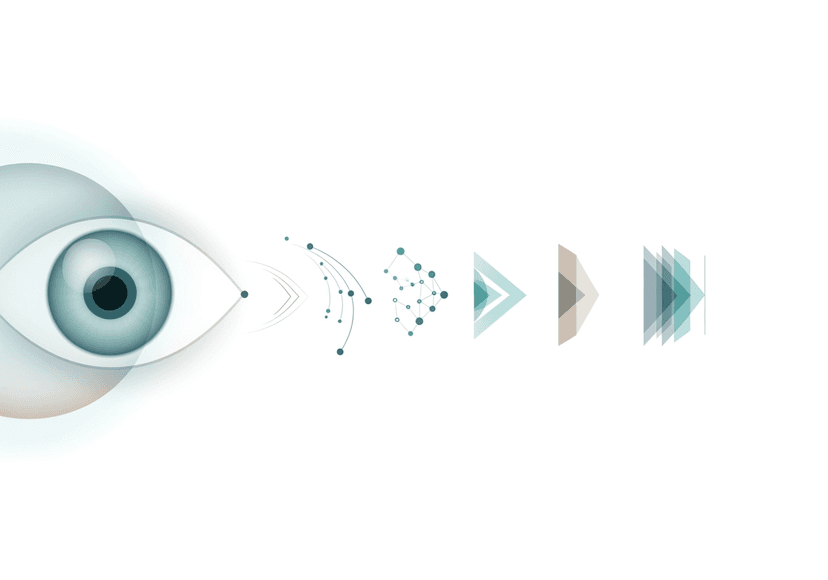
Is Eye Surgery Right for You? Healthtrip Explains Evaluation Steps
Detailed guide on eye surgery, featuring doctors, hospitals, risks, recovery,










